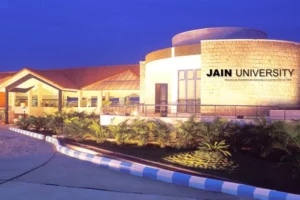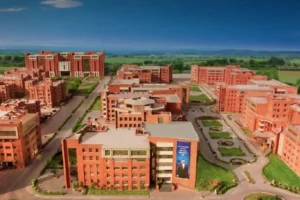A journalism course teaches learners how to communicate engaging information about people, events, and trends across various media, including radio, newspapers, magazines, internet platforms, and blogs. Journalists are responsible for writing informative, engaging, and reader-friendly articles. Further, they are trustworthy sources of factual data.
When you study journalism, you develop the ability to find and explore compelling stories and effectively communicate them. A journalism course helps future journalists navigate the dynamic field of news reporting. It offers a strong foundation for understanding the many aspects of this significant profession.
You will learn about a variety of topics while taking a journalism course. Further, you will dig into the fundamentals of journalism ethics, the legal issues related to news reporting, and the methods for a powerful narrative.
What Is Journalism Course?
The Bachelor or Masters of Media & Mass Communication is one of the most sought-after courses in India nowadays due to the fast-changing environment. This degree opens the door to a fascinating career that centres on gathering precise and relevant information and successfully delivering it via broadcast or print media to a large audience.
The duty to collect trustworthy information on certain issues or topics and then tell the public of the results is at the core of journalism. Journalists provide information to their audience using a variety of channels, including news pieces, features, reviews, and columns.
The fundamental principle of journalism is to record and convey events and occurrences to society diligently. Journalism has the power to change people’s perceptions and to have an impact on their lives.
Students with Bachelor’s degrees in media and mass communication are well-equipped to succeed in journalism. Students participate in a complete curriculum that travels many aspects of media, communication, and journalistic practises during the term.
They gain knowledge of the complexities of news collecting, interviewing, creating fascinating articles, and understanding the ethical issues related to reporting.
The journalism course provides a complete learning experience combining academic understanding with real-world applications. Students are encouraged to take an active position in internships to experience first-hand, real-world journalism experiences. These real-world experiences help them develop their talents and offer insightful information.
Students learn about new trends, technical developments, and the shifting dynamics of journalism in the digital era as they continue through the course, developing a broader awareness of the media environment. They examine the many news distribution platforms accessible, such as print media, internet platforms, and social media networks. Their views are broad, and they have the agility needed to survive in a media world that is continually changing.
The Different Types Of Journalism
Watchdog Journalism
Journalism that protects the public interest is known as watchdog journalism. By looking into and exposing misbehaviour, corruption, and wrongdoing, it focuses on bringing people, groups, and institutions responsible. As the people’s voice, watchdog journalists promote accountability and openness in society.
Investigative reporting
They conduct an in-depth study and analysis in addition to surface-level reporting. Investigative journalists uncover untold stories, reveal covert operations, and bring to light issues that might otherwise go unnoticed. Moreover, their job frequently entails in-depth investigation, interviews, data analysis, and perhaps even covert operations.
Online Journalism
Journalism for audio and visual platforms, such as radio and television, is broadcast journalism. These journalists use attractive graphics and engaging storylines to convey news items, conduct interviews, and give reports. They are essential in educating the public about happenings and advancements nowadays.
Sports journalism
Sports journalism focuses on writing about athletes, athletic events, and related news. Match commentary, athlete interviews, behind-the-scenes coverage, and in-depth pieces examining many facets of the sports world are all provided by sports writers. They aim to satisfy the enthusiasm and excitement of sports fans.
Opinion journalism
Opinion journalism entails the expression of individual opinions and ideas on problems and current events. Moreover, they give their perspectives and analyses as they analyze, comment on, and interpret events. They are essential in influencing public conversation and fostering critical thought.
Entertainment journalism
Entertainment journalism focuses on the entertainment industry, which includes films, music, television, and celebrities. Journalists covering the entertainment industry report on the newest films, speak with artists and actors and offer reviews and analyses of entertainment programming. They satisfy the interests and curiosities of fans of entertainment.
Trade journalism
Trade journalism focuses on certain professions or industries. Journalists in this journalism area cover news, trends, and changes in the industry. Their work provides useful insights and updates on their trade to experts in different sectors.
The Importance Of Good Writing Skills & Interviewing People In Journalism
In the field of journalism, writing well is essential. It serves as the basis for communication and enables journalists to portray facts in an interesting and relevant manner. In addition to keeping readers’ attention, effective writing creates a bond between the author and the reader, encouraging involvement and resonance.
There are guiding principles for writing in journalism. Journalism is to deliver facts without bias or personal beliefs. Therefore, objectivity is crucial. Accuracy guarantees that information is communicated clearly and correctly, leaving no space for misunderstanding or misinterpretation. Further, a broad spectrum of readers may easily comprehend the text because of its simplicity of wording. As journalists work to convey information effectively and shortly, briefness is prized. Factual correctness is crucial for ensuring the data is trustworthy and confirmed. Balance guarantees that many ideas and perspectives are considered, thoroughly depicting events. Finally, journalists must observe ethical norms by treating subjects and sources respectfully and honestly.
In addition to excellent writing abilities, interviewing is important in journalism. It is an effective way to acquire data and offer ideas for a story. Through interviews, journalists can get those concerned with a certain topic’s viewpoints, beliefs, and experiences. It gives the story more substance and humanizes it, allowing viewers or readers to relate to it more deeply. Interviews allow reporters to offer opposing ideas or viewpoints, giving a more complete and objective overview. By conducting interviews, journalists improve their capacity to disseminate reliable information and give the public a complete image.
Tips For Succeeding As A Journalist
Since there are many different styles of journalism, picking the one that best suits your interests can help you succeed as a journalist.
- Aim for your career: Establish definite goals and clearly define your professional aspirations. Make a decision on the influence you want your journalism to have and the topics you are most interested in. As you advance, having a distinct focus will direct your choices and activities.
- Choose the mode of journalism: Consider the many journalistic platforms, including print, television, and the internet, before selecting one. Each media has certain needs and a target audience. Examine the advantages and disadvantages of each, then decide which style best suits your skills and interests.
- Study your vision: Invest the time to study and comprehend market trends, new technological developments, and changing consumer preferences. Keep up with journalism’s most recent platforms, technologies, and methods. With this expertise, you can adapt and succeed in a media environment that is changing quickly.
- Choose a desired specialization: Select your preferred specialization from the many available in journalism, such as investigative reporting, political reporting, environmental reporting, sports reporting, and more. Choose the subject that appeals to your interests and talents the most.
- Develop a solid skill set: Journalism requires a broad range of abilities. Develop your narrative, writing, and critical thinking talents. Improve your research, fact-checking, and interviewing skills.
- Network and collaborate- Make contacts inside the journalistic industry. Attend industry gatherings, sign up for organizations for professionals, and interact with other journalists. Share ideas, work on projects with colleagues, and look for seasoned individuals to mentor you.
Check out the report by Reuters Institute on Journalism, media, and technology trends and predictions 2023.
Best Universities Offering BJMC and MJMC
IGNOU Journalism Course Fee and Distance Education in Journalism and Mass Communication
You might be interested in learning about the costs and alternatives available, particularly for remote education if you’re considering obtaining a journalism and public communication degree. The MAJMC (Master of Arts in Journalism and Mass Communication) and MA (Master of Arts) in Journalism are two of the journalism and mass communication courses offered by IGNOU.
The fee structure might change based on the programme, study style, and course length. With a flexible approach to education, IGNOU enables students to complete their education via remote learning, which may be a more convenient and cost-effective choice.
The IGNOU fee schedule for the MAJMC programme is available on their official website or by contacting the school. Typically, the fees are used for books, tests, and other academic services. Checking the most recent fee information is advised because it may change.
The cost of the MA in Journalism programme will also vary depending on the college or organization that is providing the course. To select the best alternative for your financial situation and educational objectives, exploring several colleges and their tuition rates is advised.
Master of Arts (MA) in Journalism and Mass Communication (MAJMC) from Manipal University, Jaipur (MUJ)
MAJMC from Manipal University, Jaipur (MUJ) is a 2-year postgraduate course. It is an online course. The classes for this course are in online mode. Moreover, the students get the class schedule in advance on their login portal. It is one of the best courses in journalism and mass communication online or in distance mode. The Fee for the course is INR 32,500 per semester, which comes to INR 1,30,000 for the complete course.
The eligibility for the online MAJMC course from Manipal University is a Bachelor’s degree with at least 50% marks. For reserved category students, the eligibility for the online MAJMC from MUJ is 45% marks in Bachelor’s degree.
Manipal University, Jaipur, has UGC and AICTE approval for its online MAJMC course. Further, National Assessment and Accreditation Council (NAAC) has given an ‘A+’ grade (3.26/4) to MUJ. The ‘A+’ grade signifies the quality of education provided by Manipal University, Jaipur (MUJ), as only about 5% of the universities in India have an ‘A+’ grade or higher from NAAC.
Master of Arts (MA) in Journalism and Mass Communication (MAJMC) from Chandigarh University (CU)
The MAJMC program from Chandigarh University is a 2-year postgraduate program in online mode. The course covers both journalism and mass communication. The classes for the system are in online mode. The students get a login to the online Chandigarh University portal. They provide online classes to the students on their login.
Further, they provide live classes, and the students can attend them anywhere. Further, these classes are interactive; students can interact with the faculties and their peers. Also, recordings for the same classes are available for the students to watch later in case they miss the live classes.
The Fee for the MAJMC course from Chandigarh University (CU) is INR 57,000 per semester.
The eligibility for the online MAJMC course is a graduation degree from a recognized university with 50% overall marks. Further, students from the reserved category get a relaxation of 5%. Thus, the eligibility for reserved category students comes down to 45%.
Chandigarh University has approvals from the University Grants Commission (UGC) and the All India Council of Technical Education (AICTE) for their online courses. Further National Assessment and Accreditation Council (NAAC) has given Chandigarh University an ‘A+’ grade.
Comparing Journalism and Mass Communication Programs at MUJ and CU: An Informed Decision
The MJMC programme at Chandigarh University (CU) and the MAJMC programme at Manipal University Jaipur (MUJ) provide worthwhile educational opportunities in journalism and mass communication. Nevertheless, it’s important to recognize that some aspects, including entrance standards, course offerings, and costs, may vary between the two universities.
Let ShikshaGurus Guide You In Choosing The Right Path
Planning is necessary when choosing a profession in media. It’s reasonable to feel daunted by the abundance of possibilities. ShikshaGurus can help with it. Our knowledgeable counsellors are well-versed in journalism. They can provide insightful counsel and suggest the best institution and programme.
You’ll have access to extensive information and resources when you consult ShikshaGurus. Our counsellors will spend time getting to know your objectives, passions, and circumstances in life. They will use their knowledge to guide your selection regarding your journalism education.
Our experts will assist you in finding the ideal institution or university that meets your goals, whether you decide to pursue a Bachelor’s or a Master’s. We know how crucial it is to locate a respectable school with a strong curriculum, qualified instructors, and experiential learning opportunities. ShikshaGurus will assist you in the process so you can choose wisely.
We also recognize the significance of affordability. ShikshaGurus gives its all to assist you in locating a budget-friendly education. We will help you identify solutions that are within your price range.
Conclusion
In conclusion, journalism is a broad and significant profession encompassing various reporting styles. Good writing abilities and successful interviews are essential to present information to the audience effectively. People may get assistance from ShikshaGurus in selecting the best institution or university for their journalism studies. Aspiring journalists may thrive in this dynamic field by improving these abilities and making wise decisions. Constructive contribution to society requires responsible journalism and a dedication to the truth. Further, by embracing its various facets and seeking advice, you can attain a fulfilling career in journalism. ShikshaGurus will assist you in locating the top institution or university that fits your goals and budget, whether you’re interested in obtaining a Bachelor’s or a Master’s degree.








